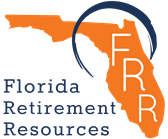Employer Retirement Plan Management
What is Employer Retirement Plan Management?
An employer retirement plan is a workplace benefit offered by some companies to help provide workers with income in retirement. They come in different forms; however, these forms fit in two categories.
- Defined benefit plan, which promises a specified monthly benefit at retirement. It may be a fixed dollar account or vary depending on a formula that considers salary, years of service, or other factors.
- Defined contribution plan, which does not promise any retirement income; instead, it allows workers to save for their retirement, sometimes with the employer's assistance.
Therefore, employer retirement plan management involves providing retirement plan sponsors and administrators, in this case, employers, with the tools to manage retirement plans more efficiently. An employer retirement planning manager offers instant access to plan information and multiple resources.
Why is Employer Retirement Plan Management Important?
Employer retirement planning is complex, and the process can be daunting and confusing. Some key features of these plans include:
- An employer automatically deducts retirement plan contributions from an employee's paycheck.
- An employee decides what portion of the salary to contribute, up to the legal limit.
- An employer may match all or part of the contributions up to a certain level.
- An employee's funds grow tax-deferred in the plan.
- An employee will incur income tax or an early withdrawal penalty if they decide to withdraw their money.
- An employee may borrow a portion of their vested balance
The inner workings of employer retirement planning require an individual well-versed in the fundamentals of financial management. As such, unless you are knowledgeable in employer retirement planning, it is wise to seek professional assistance from financial advisors, and this is where an employer retirement plan manager comes in.
An independent and licensed employer retirement management firm will factor in your unique financial situation, employment contract, and other determinants to help you decide what portion of the salary to contribute, withdrawals, and other critical issues in your retirement planning.
Partnering with a specialist in the field will ensure you evaluate your investment choices carefully. Most employer-sponsored plans offer a selection of investment options to choose from. An employer retirement manager will help you research and assess available investment options and suggest the appropriate mix that could be the key to your comfortable retirement.
Regulations on Employer Retirement Planning
Employer-sponsored retirement planning is regulated at federal and state levels. Regulations vary between states. For instance, retirement plans are mandated in some states where employers must provide retirement benefits to their employees. Employers can comply with such state-mandated plans in two ways; enroll their employees into a state-sponsored retirement program or sponsor a plan of their own through the private market.
The requirements for employers and employees under the state-mandated retirement benefits depend on individual jurisdictions, organization size, and how long it has been in business. The inner workings of the plans also vary between states. Therefore, it is prudent to be informed about state-specific regulations on employer retirement planning for each state for compliance purposes.
FAQs
How do employer retirement plans work?
Employer retirement plans such as 401(k) and Roth 401(k) plans provide employees with an intuitive way to save for retirement while benefiting from tax breaks. The reward to employees who participate in these programs is they essentially receive free money when their employers offer matching contributions.
Why do employers offer retirement plans?
Employers offer retirement plans mostly to comply with regulatory standards on employee retirement benefits.
A workplace retirement plan usually represents the majority of an individual's savings. However, it comes with its share of complexities that require some level of financial knowledge and expertise. Therefore, a professional advisor will help you understand your employer's retirement planning journey, help you decide what you need to save, and find the right investment mix to meet your future income retirement goals.

